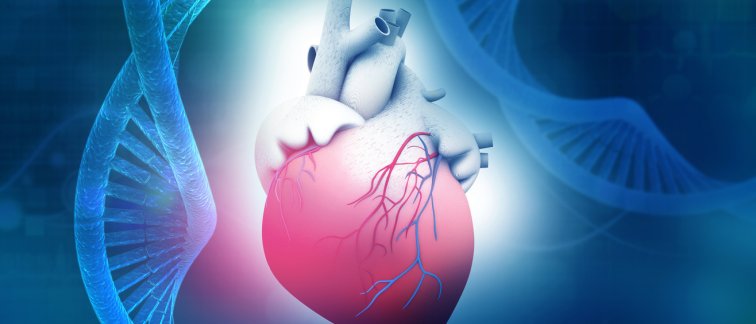People with HCM have thickened heart muscle, which can affect how the heart works. The disease - which affects 1 in 500 people - can lead to heart failure and sudden cardiac death. Whereas a genetic mutation is found in half of the HCM patients, the cause remains unknown in the other half. “Even if we find a genetic cause, it is impossible to predict how sick someone will become from it,” says Connie Bezzina of the Experimental Cardiology Department.
Genetic variations
Bezzina and colleagues looked for genetic variations that, in addition to the genetic defect, contribute to the severity of HCM. “On their own, these genetic variations don't do that much. But all together they can have a major influence on the severity of the clinical picture.”
The researchers conducted genome-wide association studies (GWAS), in which DNA from patients with HCM was compared with the DNA of the general population. In addition, they had access to material from nearly 20,000 people without structural heart disease through the UK Biobank. In this Biobank they looked for variations in genes involved in the functioning of the left ventricle. In this way they developed a risk score with which they can explain the variation in the manifestations of HCM. Ultimately, Bezzina hopes that such a score can predict the severity of HCM.
Heart muscle contraction
Furthermore, the researchers gained more insight into the biological mechanisms behind the condition. Interestingly, these variations influence the contraction of the heart muscle. This provides new possibilities for the treatment of HCM.
Bezzina's group conducted the research together with Erasmus MC and UMCG, and Canadian and British colleagues. The publication in Nature Genetics is available on the Nature website.
Text (in Dutch): Irene van Elzakker, www.amc.nl

